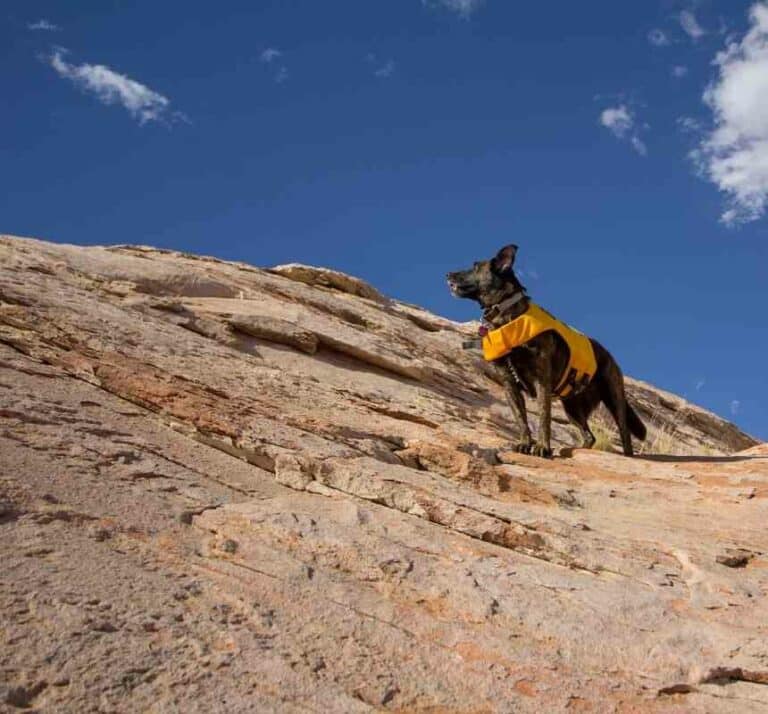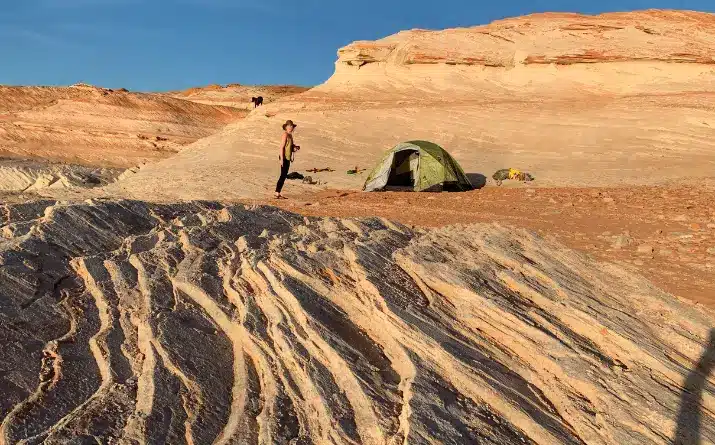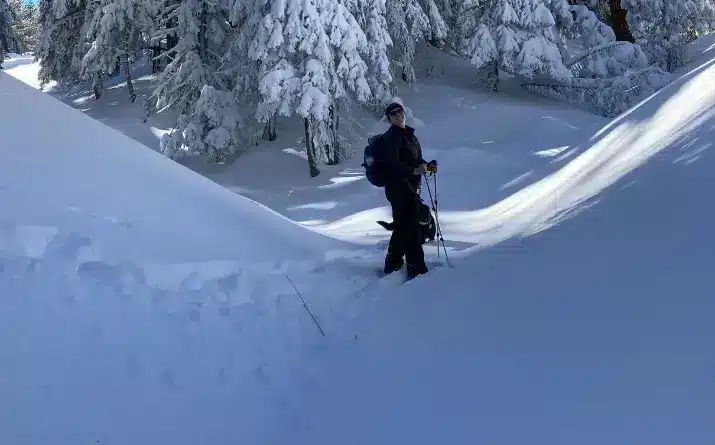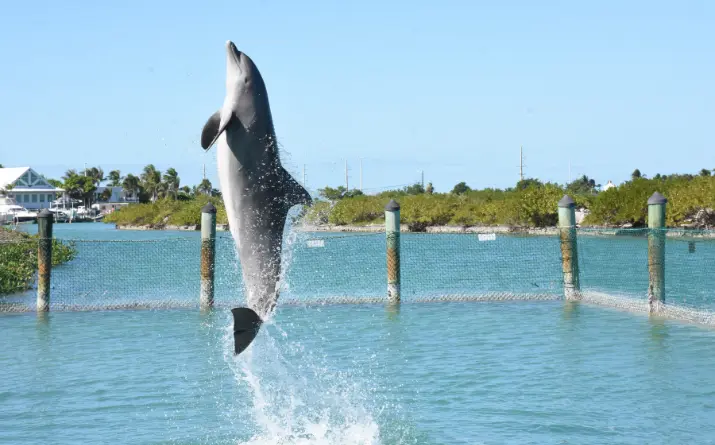Leave No Trace: What is it and Why is it Important?
Have you ever driven out to a campsite and found it overflowing with trash and broken glass? What about stumbling upon a campfire that’s not fully put out when you get ready to start dinner around the fire ring? If you often go out adventuring or camping, you may have witnessed a few of these things. When you see something like this in nature, it can leave you with a bad taste in your mouth. These are examples of why Leave No Trace is important.
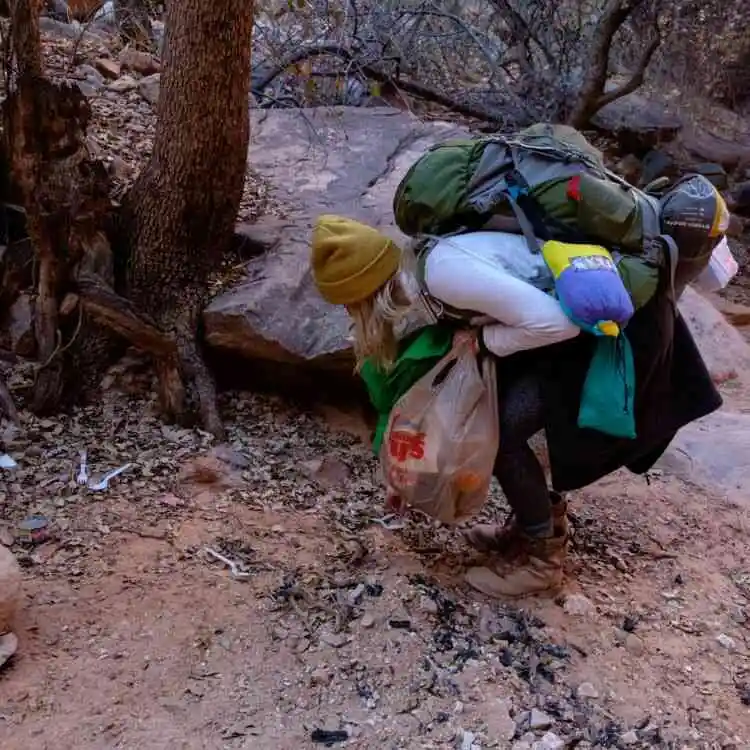
There are so many reasons to leave no trace every time you get outside, but before we get into why it’s important, let’s walk through the seven principles of “Leave No Trace” so you know exactly what it means.
7 Principles of Leave No Trace
These are the 7 Principles of Leave No Trace:
- Plan Ahead and Prepare
- Dispose of Waste Properly
- Travel and Camp on Durable Surfaces
- Minimize Campfire Impacts
- Respect Wildlife
- Be Considerate of Others
- Leave What You Find
The Leave No Trace Center for Outdoor Ethics is a member-driven organization that aims to teach people how to enjoy the outdoors in a responsible manner. Let’s dive a little deeper into each principle of Leave No Trace.
Plan Ahead and Prepare
Make sure you plan ahead and are prepared for your adventure. Whether you’re hiking, camping, rafting, or enjoying another outdoor activity, always do your best to pack and plan for any kind of emergency. Also ensure you have enough space and the ability to pack out what you pack in.
You should always be aware of what you can and can’t do whenever you get to your outdoor destination before you get there so you know how to best be a steward of the area.
Dispose of Waste Properly
Not every campground or trail has bathroom facilities or receptacles for you to throw away your trash. Always make sure you know the rules and regulations around how to properly throw away your trash when you’re in nature.
PACK IN, PACK OUT
The basic premise of properly disposing of waste includes the simple process of ensuring that you do not leave anything behind. If you’re on the trail and have a packaged snack, put the wrapper in your daypack and carry it back to your campsite.
Before you depart, check your campsite for any litter or food that may have spilled on the ground. Pack out all trash.
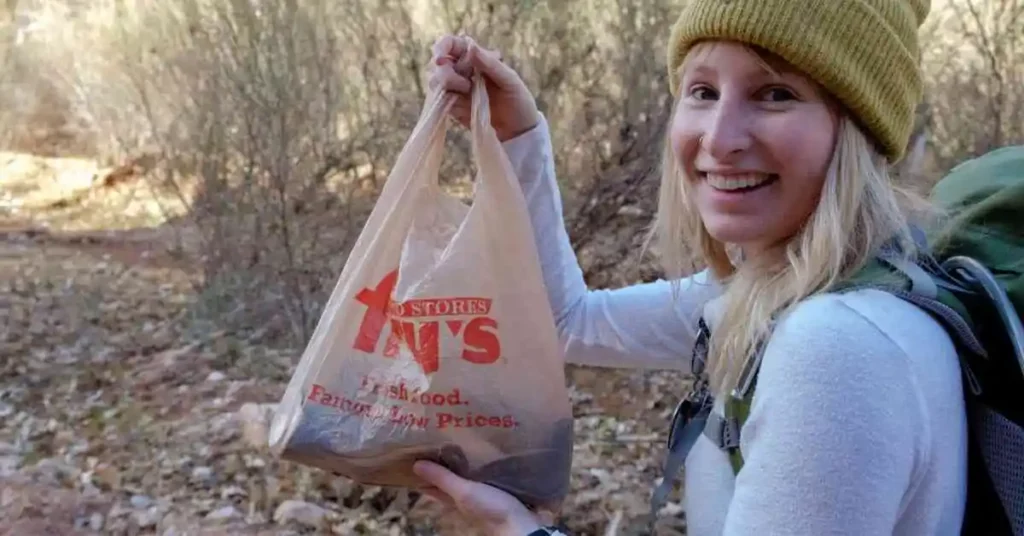
DISPOSE OF WASTE
Also be sure to deal with your bodily waste (poop & pee!) wherever you go outside. Carry a trowel and bury waste and toilet paper in a deep cathole that is at least 200 feet from any water source, camping area, or trail. Don’t forget to cover it up!
Travel and Camp on Durable Surfaces
Certain environments are not safe for human or pet travel or will expedite erosion if humans, vehicles, or pets tread on the area. It’s important to know where you’re allowed (and not allowed) to camp.
Best practice is to camp at least 200 feet away from water sources, while always staying on established trails, rock, gravel, snow, or dry grasses.
If you are unsure whether hiking or camping is allowed somewhere, then assume it’s not! If it’s muddy or damp, it’s always best practice to walk in a single file line to reduce damaging the environment as much as possible.
Minimize Campfire Impacts
According to the National Park Service, 85% of all wildfires are caused by humans. Which means when Smokey Bear says “Only you can prevent wildfires,” he means it. It’s important you understand how to properly start and put out a campfire before you light one outside.
It’s always best to use a campfire ring where one already exists. If you are backcountry camping it’s essential that you first take the time to learn how to properly start and put out a campfire. Otherwise, you run a higher risk of spreading wildfire.
Respect Wildlife
The Institute and Department of Wildland Resources estimates 47,000 people are injured or bitten by wildlife each year in the United States.
Wildlife is just that…wild animals. They often feel threatened by humans or other unfamiliar things they encounter. From rattlesnakes to bison to bears, it’s imperative you give all wildlife room to roam without you becoming a threat to them.
Always keep your distance, never follow any wildlife. Ensure your pets are constrained when wildlife make themselves present near you.
Read more: Keep Dogs Safe While Camping
Never feed or leave food available for wildlife. Leaving food behind or offering food gives other animals the opportunity to join in while you’re there or when the next camper or hiker comes through the area.
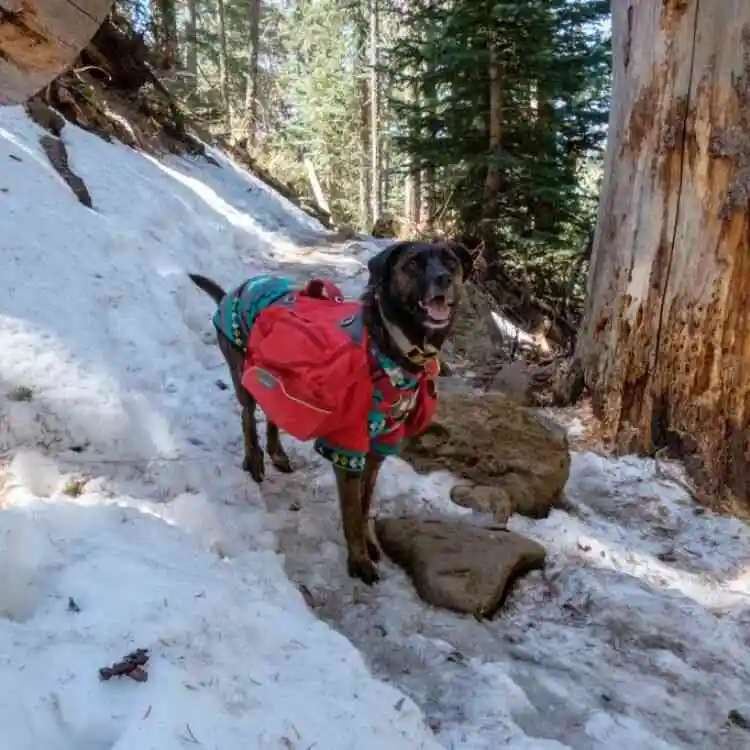
Be Considerate of Others
Whenever you’re on a trail or at a campground, you should always be considerate of other humans, pets, wildlife, and the environment. Loud music after dark or throwing glass bottles into the fire pit are not acceptable when you are following the Leave No Trace principle.
You should always strive to keep the experience of the outdoors as close to what it would be without you present to ensure other people can enjoy their recreational experiences, too.
Leave What You Find
Never take nature with you. You should leave all rocks, flowers, dirt, and other flora where it is. You’re welcome to admire nature’s beauty and the historical artifacts that you find. But, please respect it and leave everything you find exactly where it was to honor nature and the history behind it.
Never build rock structures or dig large holes and trenches. We all go outside to enjoy nature as it is so please remember that what you do impacts everyone else’s experience after you.
4 Reasons Leave No Trace Is Important
Leaving no trace is more important than most people think. Impacts from human and pet activity has a big effect on nature as more and more people participate in outdoor adventure and recreational activities. With more people accessing the outdoors on a regular basis, the impact we have on nature continues to increase.
Here are a few reasons why it’s important to leave no trace:
IMPACT FROM WILDFIRES
- Campfires and human errors cause a majority of wildfires that devastate not only wild lands, but also residential areas. One spark can ignite a fire that could spread over thousands of acres, displacing or causing death to wildlife and humans. It sounds extreme, but it’s happening more and more frequently.
- Also keep in mind that in addition to the destruction from burning, wildfires release into the air large quantities of hazardous pollutants, including carbon dioxide and other contaminates.
INCREASED WILDLIFE ENCOUNTERS
- Wildlife are adapting to humans being in their space (and communicating that they are not happy with us being too close to them). This leads to more wildlife to human interactions and opportunities for bear attacks and large animal related injuries (like the bison in Yellowstone National Park). Wildlife that become too comfortable around humans are often euthanized if they do not learn to go back into the wild on their own. Feeding wild animals could lead to the end of its life, which is not something any of us want on our hands.
BUILD UP OF NON BIODEGRADABLE WASTE
- Things like toilet paper and glass are not biodegradable. Whatever you leave in the backcountry will stay there for a very long time. Even a banana peel can take up to two years to decompose. Wildlife are often known to dig up human or pet waste and food, which can make them sick or give them a reason to go out looking for more, which again leads to an increasing number of encounters between humans and wildlife.
IMPROPER DISPOSAL OF HUMAN WASTE
- Dumping waste of any kind near bodies of water can make animals and other humans very sick, too. Anything that is not natural near bodies of water can be absorbed and passed along down the river, lake, or soil.
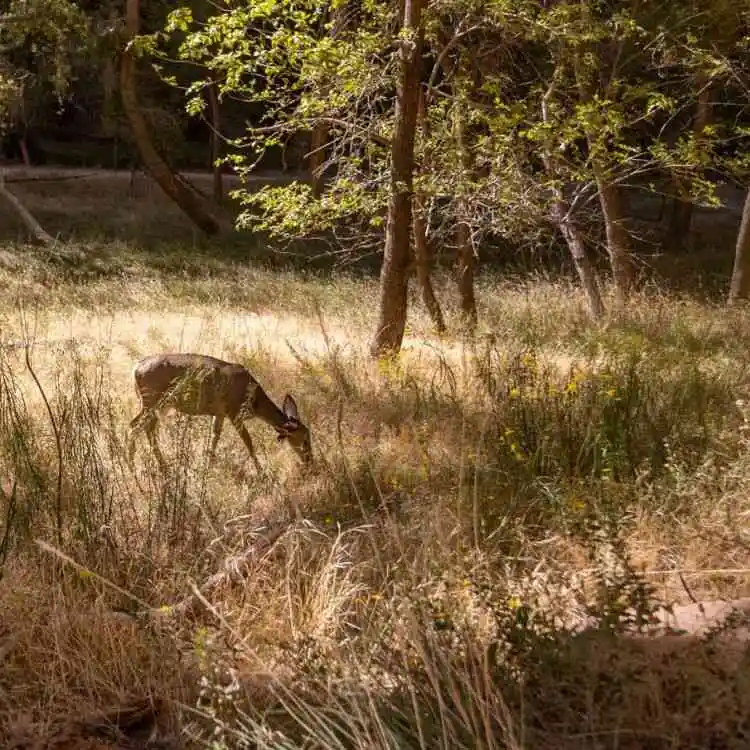
It’s Time to Leave No Trace
We want to enjoy the outdoors as it is, right? If we don’t clean up after ourselves, we not only leave trash behind that ruins the views and experience for others, but we also alter the way nature and wildlife exists in that area.
Changing patterns of how nature and wildlife works will displace and damage these beautiful places and ecosystems. When humans don’t do their part, some natural areas will eventually be closed to the public or become too damaged for us to visit and enjoy.
*For more information related to Leave No Trace, check out the Leave No Trace – Center for Outdoor Ethics website.
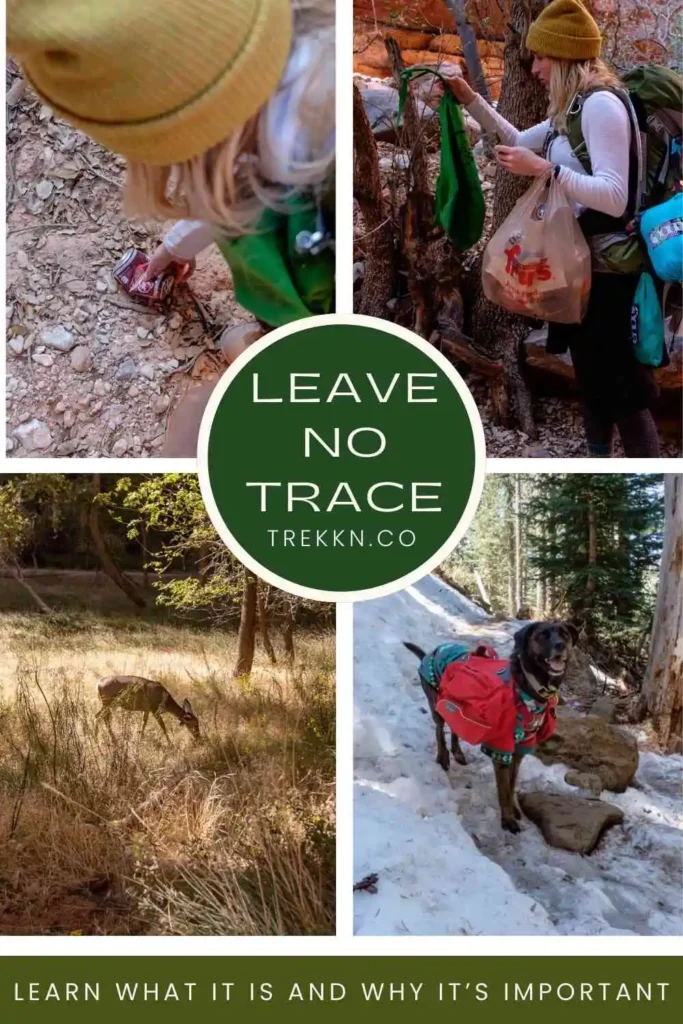
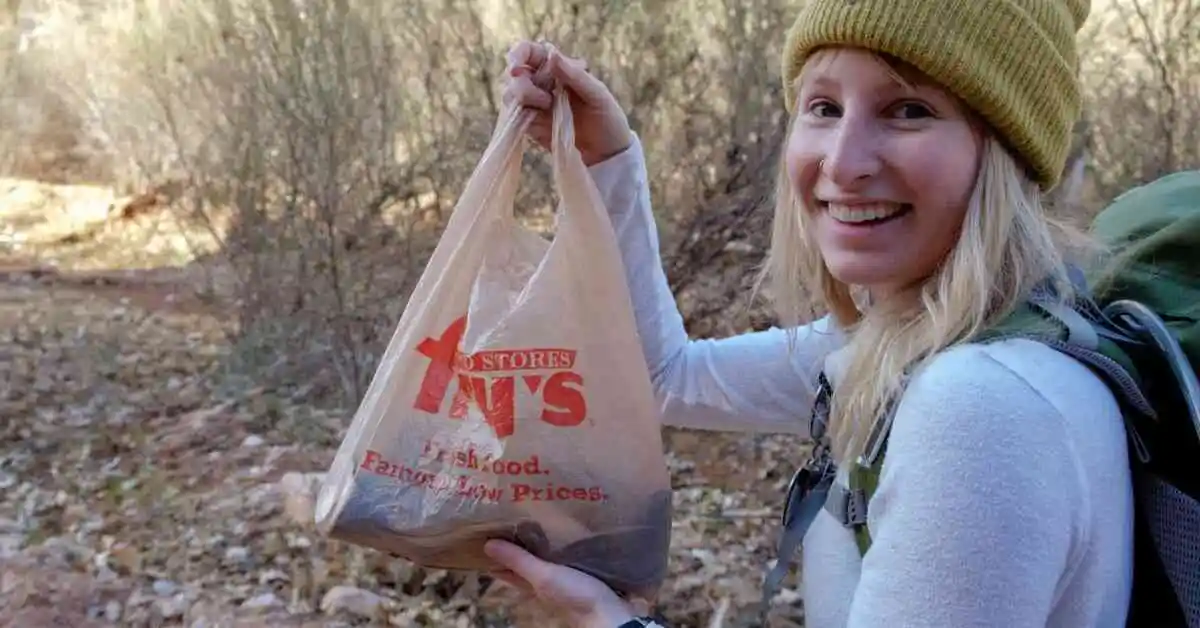
Erin is rooted in South Dakota, but wanders every chance she gets to see the beauty that nature holds. From hiking to climbing, there’s not an adventure she’ll turn down. After renovating her 1976 Airstream Argosy, Erin knows the ins and outs of living life on the road and trailer maintenance. Whether she’s on the road with her dog and partner or at home curled up with a good book, Erin is always planning her next adventure because life is meant to be lived outdoors.


